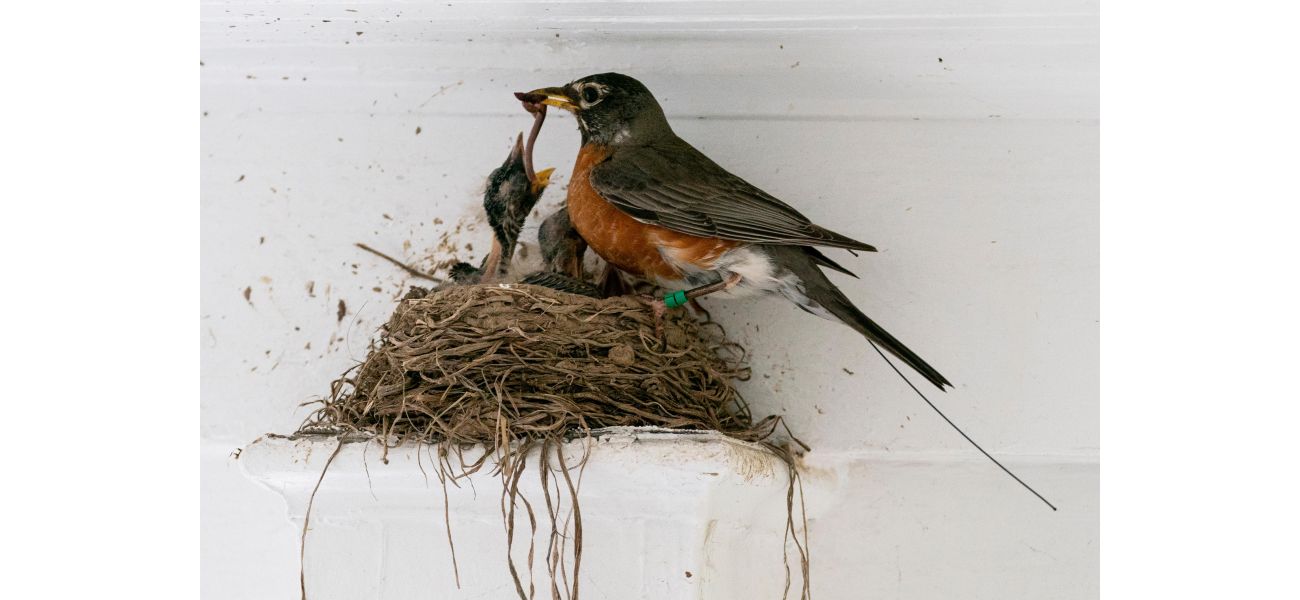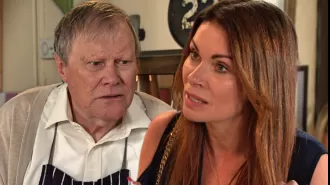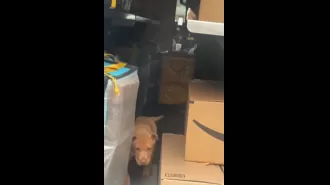People's opinions of garden bugs are transforming, as many previous 'harmful' insects are now seen as beneficial.
Insects like beetles, assassin bugs, and wasps play important roles in the environment despite seeming scary.
November 30th 2024.

Jessica Damiano, a renowned gardening expert, received a text from her neighbor this week. Her neighbor was seeking advice on how to control carpenter bees. While she was expecting a recommendation for an exterminator, Jessica instead suggested a simple, DIY solution that is not only easier on the wallet and the environment, but also more effective.
This incident led Jessica to ponder the importance of taking a moment to understand if insects actually pose any harm, and if so, to what extent. She believes that instead of immediately resorting to a spray can or calling in professionals, it is essential to educate ourselves on the role of insects in our ecosystem and reconsider our perception of them as mere pests. In fact, there are many less-familiar insects that are beneficial to the environment, such as native beetles, assassin bugs, and wasps, despite their intimidating appearance.
In fact, the Royal Horticultural Society in Great Britain has removed the "pest" label from slugs and snails, which are typically considered to be nuisances in gardens. These creatures play a vital role in the ecosystem by consuming decaying vegetation and serving as a source of food for other animals, including birds and frogs. Some species even help control algae. Jessica believes that everything on Earth has a purpose, whether we realize it or not.
As gardeners become more aware of the relationships between different life-forms, they are starting to view insects as integral parts of a sustainable landscape, rather than unwanted intruders. Jessica advised her neighbor that using pesticides to eradicate carpenter bees can also harm other pollinators and beneficial insects. Additionally, the chemicals would need to be applied repeatedly to maintain control, which could result in an "upsell" for a service plan.
Carpenter bees may seem intimidating because of their size and appearance, but the male bees do not have stingers, and the females only use theirs when disturbed. However, they do drill holes in wooden surfaces, which can be a nuisance. To discourage them from accessing their nests, Jessica recommended sealing the holes with wood putty and painting bare wood, as carpenter bees do not like painted surfaces. Another effective deterrent is spraying almond or citrus oil into the nest openings, as these scents repel the bees.
But, in severe infestations, it may be necessary to take a stronger approach. In these cases, Jessica recommends using organic controls, like diluted Neem oil, which should only be applied after dark to avoid exposing pollinators. A homemade soap spray, made by mixing dish soap and water, can also be used to control soft-bodied insects on plants, if necessary.
To support native insects, like ladybugs, lacewings, and parasitic wasps, Jessica suggests planting nectar-rich, flowering native plants. It is also essential to avoid planting the same crops in the same beds year after year. Rotating crops will deprive pests that target specific plants of their food source and provide a clean slate when the crops are reintroduced after two or three years.
Jessica also encourages gardeners to accept some "pest" activity. She believes that a few nibbles on leaves should not justify eradication. These measures should only be taken when the damage threshold has been crossed, which is often not the case.
Furthermore, Jessica highlights the importance of the circle of life in the ecosystem. For instance, a single nest of baby birds can consume thousands of caterpillars and insects in just a few weeks. To attract these birds, Jessica suggests setting up a feeder and providing clean, fresh water. They will do an excellent job of controlling pests in the garden without any cost.
In Jessica's opinion, the best exterminator for a gardener is nature itself. She is a weekly columnist for the AP and publishes the award-winning Weekly Dirt Newsletter, where she shares gardening tips and advice. Interested readers can sign up for the newsletter to receive weekly updates. Gardening is not just about growing plants; it is about understanding and respecting the delicate balance of nature.
This incident led Jessica to ponder the importance of taking a moment to understand if insects actually pose any harm, and if so, to what extent. She believes that instead of immediately resorting to a spray can or calling in professionals, it is essential to educate ourselves on the role of insects in our ecosystem and reconsider our perception of them as mere pests. In fact, there are many less-familiar insects that are beneficial to the environment, such as native beetles, assassin bugs, and wasps, despite their intimidating appearance.
In fact, the Royal Horticultural Society in Great Britain has removed the "pest" label from slugs and snails, which are typically considered to be nuisances in gardens. These creatures play a vital role in the ecosystem by consuming decaying vegetation and serving as a source of food for other animals, including birds and frogs. Some species even help control algae. Jessica believes that everything on Earth has a purpose, whether we realize it or not.
As gardeners become more aware of the relationships between different life-forms, they are starting to view insects as integral parts of a sustainable landscape, rather than unwanted intruders. Jessica advised her neighbor that using pesticides to eradicate carpenter bees can also harm other pollinators and beneficial insects. Additionally, the chemicals would need to be applied repeatedly to maintain control, which could result in an "upsell" for a service plan.
Carpenter bees may seem intimidating because of their size and appearance, but the male bees do not have stingers, and the females only use theirs when disturbed. However, they do drill holes in wooden surfaces, which can be a nuisance. To discourage them from accessing their nests, Jessica recommended sealing the holes with wood putty and painting bare wood, as carpenter bees do not like painted surfaces. Another effective deterrent is spraying almond or citrus oil into the nest openings, as these scents repel the bees.
But, in severe infestations, it may be necessary to take a stronger approach. In these cases, Jessica recommends using organic controls, like diluted Neem oil, which should only be applied after dark to avoid exposing pollinators. A homemade soap spray, made by mixing dish soap and water, can also be used to control soft-bodied insects on plants, if necessary.
To support native insects, like ladybugs, lacewings, and parasitic wasps, Jessica suggests planting nectar-rich, flowering native plants. It is also essential to avoid planting the same crops in the same beds year after year. Rotating crops will deprive pests that target specific plants of their food source and provide a clean slate when the crops are reintroduced after two or three years.
Jessica also encourages gardeners to accept some "pest" activity. She believes that a few nibbles on leaves should not justify eradication. These measures should only be taken when the damage threshold has been crossed, which is often not the case.
Furthermore, Jessica highlights the importance of the circle of life in the ecosystem. For instance, a single nest of baby birds can consume thousands of caterpillars and insects in just a few weeks. To attract these birds, Jessica suggests setting up a feeder and providing clean, fresh water. They will do an excellent job of controlling pests in the garden without any cost.
In Jessica's opinion, the best exterminator for a gardener is nature itself. She is a weekly columnist for the AP and publishes the award-winning Weekly Dirt Newsletter, where she shares gardening tips and advice. Interested readers can sign up for the newsletter to receive weekly updates. Gardening is not just about growing plants; it is about understanding and respecting the delicate balance of nature.
[This article has been trending online recently and has been generated with AI. Your feed is customized.]
[Generative AI is experimental.]
0
0
Submit Comment





